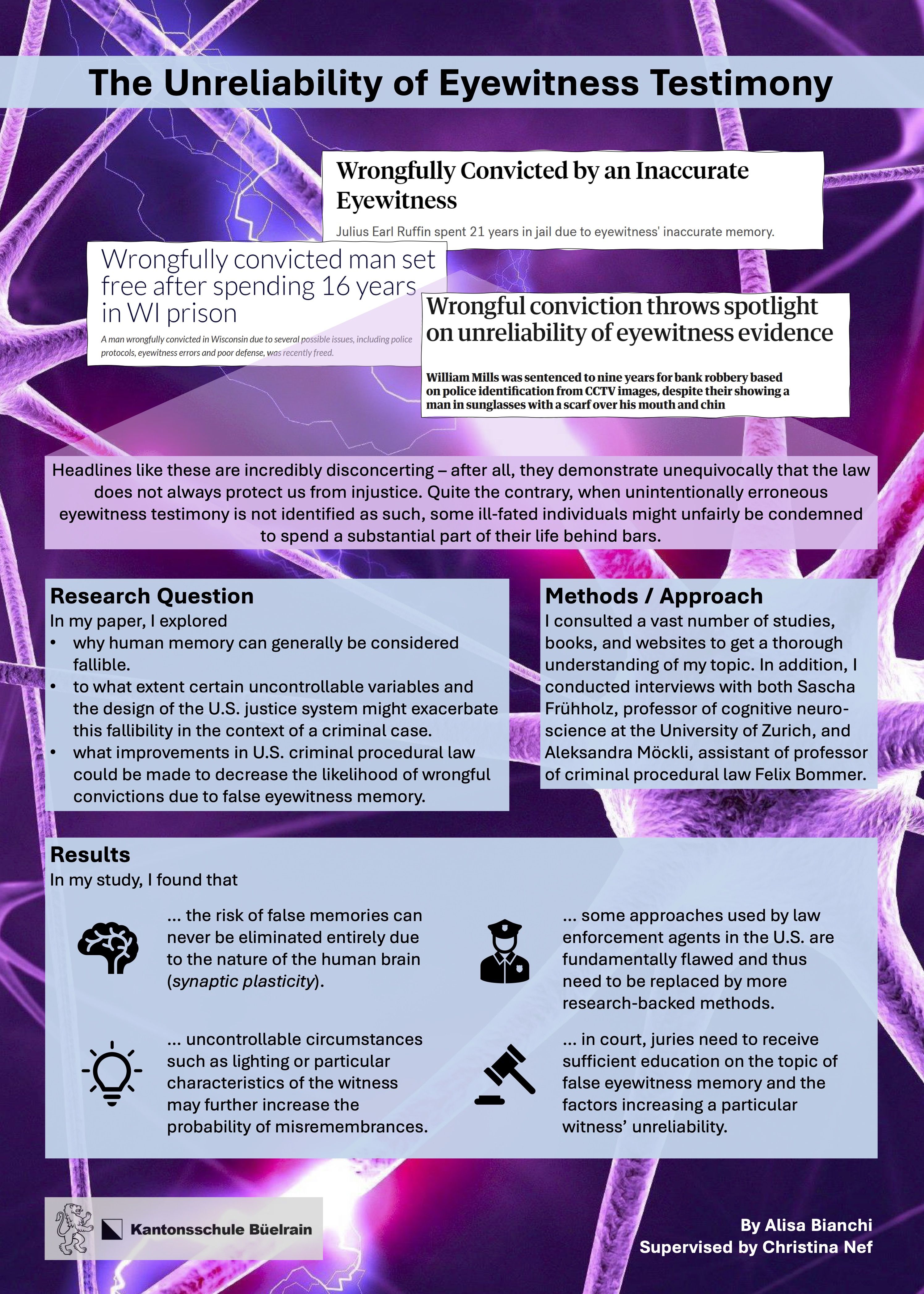Autor/-in:
Bianchi Alisa
The Unreliability of Eyewitness Testimony
An analysis in the light of neuroscience and criminal procedural law Matura
Nef Christina
Sigrist Christine
Kantonsschule Büelrain
Fach: Biologie / Recht
Abstract
We would like to think our memories are always accurate depictions of the past – yet present-day research suggests this is not the case. In day-to-day life, the effects of this might be insignificant. However, when law enforcement officials regard eyewitness testimony, which, in other words, is an account of the memories a certain person has about a certain event, as undeniable evidence, severe consequences like wrongful convictions can arise. This paper investigates why eyewitness memory is so unreliable and what factors increase said unreliability, and subsequently applies the knowledge in an analysis of the role of eyewitness testimony in the U.S. justice system. In order to get to the bottom of the issue, the author conducted a literary review of multiple studies, books, and websites. In addition, Sascha Frühholz, professor of cognitive neuroscience at the University of Zurich, and Aleksandra Möckli, assistant of professor of criminal procedural law Felix Bommer, contributed to the paper in the form of an interview. The study revealed that the risk of memory distortion can never be eliminated completely due to the human brain’s anatomical predisposition. The circumstances as well as the severity of a particular crime, and a witness’ individual traits all influence how prone to distortion their memory of the event ultimately is. Furthermore, it could be established that the importance of eyewitness testimony varies from case to case depending on the availability of other evidence, and that there undeniably exist flaws in the design of several approaches during the investigation phase of the criminal procedure. Subsequent findings suggested that among rectifying said errors, educating the jury on the topic of distorted memories in eyewitness testimony may prove successful in minimizing wrongful convictions.
